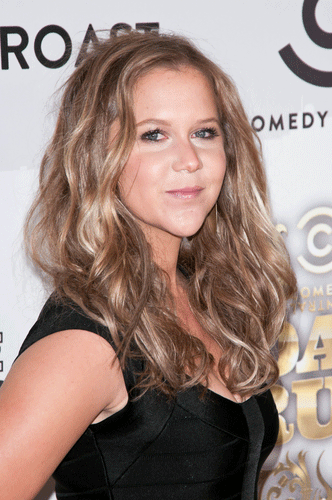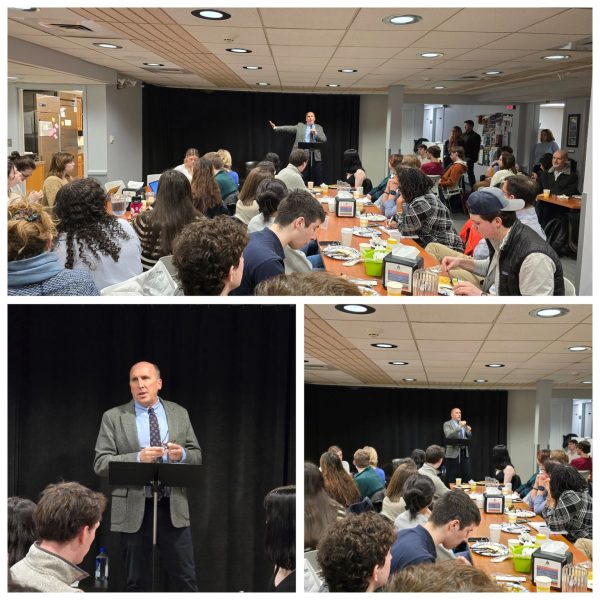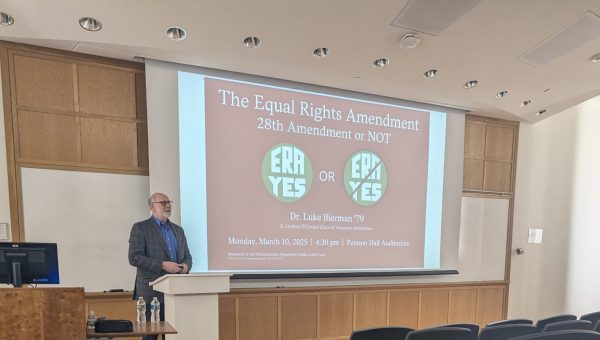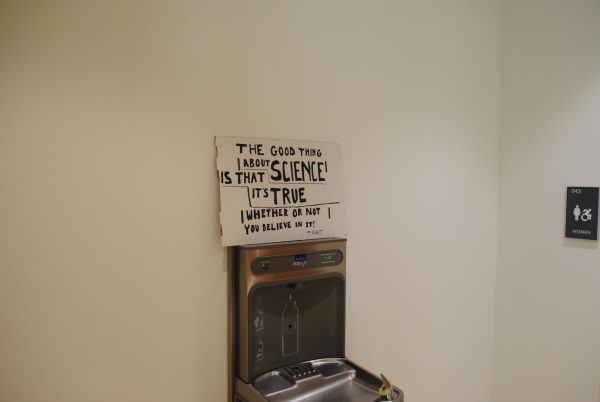Brown Bag Seeks to Redefine White Feminism

Amy Schumer
On Tuesday, January 26, the Center for Women’s Studies hosted a brown bag titled, “Are you Mad? White Feminism 101.” The event was hosted by Africana, Latin American, Asian American and Native American (ALANA) Cultural Center Outreach Programming Coordinator Christelle Boursiquot ’15 and Women’s Studies Program Assistant Allie Fry.
Boursiquot and Fry opened the brown bag by explaining that the event’s objective was to explore the key tenets of white feminist thought and the way in which individuals practice feminism on a daily basis. The pair discussed a series of high-profile women who have been heralded as feminists, but who may not be deserving of such recognition.
Boursiquot and Fry highlighted statements made by these women which appear to be inconsistent with a true commitment to feminism.
Comedian Amy Schumer, one of the women mentioned in the discussion, faced criticism for a racist joke, in which she grossly generalized that all Hispanic men sexually assault women.
While Schumer has achieved success as a stand-up comedian, Boursiquot and Fry suggested that Schumer crossed the line by making such remarks because a true feminist must demonstrate mutual respect for other minorities. Crass humor is no excuse to violate such protocol.
Another example of a complicated feminist figure is Elizabeth Cady Stanton, a leading figure in the fight for abolition and women’s rights. While Stanton was a strong advocate for women’s rights and promoted abolitionist groups, she was prone to racist language, and once asked the question, “What will we and our daughters suffer if these degraded black men are allowed to have the rights that would make them even worse than our Saxon fathers?”
Boursiquot and Fry provided numerous examples of twenty-first century high-profile women who are viewed by many as feminists, but who have made statements that would appear to contradict the values of feminism, including Jennifer Lawrence, Madeleine Albright and Hillary Clinton. Boursiquot and Fry acknowledged that no one is perfect and it is understandable that prominent individuals who are constantly in the spotlight are bound to slip up.
However, they said that while all of these offenders could have addressed their statements in some way, few have released a public apology. Boursiquot and Fry effectively urged the audience not to focus on celebrities in searching for feminist ideals.
Senior Victoria Tarantino spoke to the importance of turning the focus away from media-espoused prominent feminists.
“I think that Allie and Christelle did a great and much needed job of deconstructing these celebrities who have
undeservingly become false prominent faces in the feminist movement,” Tarantino said.
Boursiquot and Fry went on to discuss the tenets of white feminism, pointing to celebrities like Schumer who intentionally make irresponsible statements that, in their view, diminish the cause of feminism. They also analyzed the role that white privilege plays in white feminism. Boursiquot and Fry used the phrase “anti-intersectionality” to explain that white feminists are centering the feminist cause primarily around the experience of middle and upper class white women. They contend that middle and upper class white women are failing to represent those outside of their narrow experience and, in some cases, these comparatively privileged women seem to be working harder to create allies among white men than trying to support women of color. Women must get over racial differences in order to truly practice feminism.
Sophomore Claire Foussard explained her motive for attending this event.
“As a white, able-bodied, heterosexual, upper-middle class, cisgender woman, I know that I am the chief beneficiary of white feminism, and I am sure that I have been guilty of white feminism ideology on more than one occasion. I chose to attend this brown bag to further educate myself on how I might have participated in white feminism in the past and how to prevent doing so in the future,” Foussard said.





